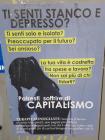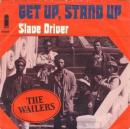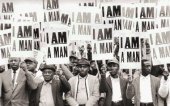I own I am shocked at the purchase of slaves
And fear those who buy them and sell them are knaves
What I hear of their hardships, their tortures, and groans
It's almost enough to draw pity from stones
I pity them greatly, but I must be mum
For how could we do without sugar and rum?
Especially sugar, so needful we see?
What? Give up our desserts, our coffee, and tea?!
Besides, if we do, the French, Dutch, and Danes
Will heartily thank us, no doubt, for our pains
If we do not buy the poor creatures, they will
And tortures and groans will be multiplied still
I own I am shocked at prisoners in the mines
And kids sewing clothes for our most famous lines
What I hear of their wages seems slavery indeed
It's enough that I fear it's all rooted in greed
I pity them greatly, but I must be mum
For what about nickel, cobalt, lithium?
The garments we wear, the electronics we own?
What? Give up our tablets, our laptops, and phones?!
Besides, if we do, the prices will soar
And who could afford to pay one dollar more?
Sitting here typing it seems well worth the price
And you there, listening on your favorite device
This bargain we're in, well, it's not quite illicit
So relax, my friend, we're not all complicit
And fear those who buy them and sell them are knaves
What I hear of their hardships, their tortures, and groans
It's almost enough to draw pity from stones
I pity them greatly, but I must be mum
For how could we do without sugar and rum?
Especially sugar, so needful we see?
What? Give up our desserts, our coffee, and tea?!
Besides, if we do, the French, Dutch, and Danes
Will heartily thank us, no doubt, for our pains
If we do not buy the poor creatures, they will
And tortures and groans will be multiplied still
I own I am shocked at prisoners in the mines
And kids sewing clothes for our most famous lines
What I hear of their wages seems slavery indeed
It's enough that I fear it's all rooted in greed
I pity them greatly, but I must be mum
For what about nickel, cobalt, lithium?
The garments we wear, the electronics we own?
What? Give up our tablets, our laptops, and phones?!
Besides, if we do, the prices will soar
And who could afford to pay one dollar more?
Sitting here typing it seems well worth the price
And you there, listening on your favorite device
This bargain we're in, well, it's not quite illicit
So relax, my friend, we're not all complicit
inviata da Dq82 - 12/4/2019 - 12:01
Lingua: Inglese
La poesia originale di William Cowper
I own I am shocked at the purchase of slaves,
And fear those who buy them and sell them are knaves;
What I hear of their hardships, their tortures, and groans
Is almost enough to draw pity from stones.
I pity them greatly, but I must be mum,
For how could we do without sugar and rum?
Especially sugar, so needful we see;
What, give up our desserts, our coffee, and tea?
Besides, if we do, the French, Dutch, and Danes,
Will heartily thank us, no doubt, for our pains:
If we do not buy the poor creatures, they will:
And tortures and groans will be multiplied still.
If foreigners likewise would give up the trade,
Much more in behalf of your wish might be said;
But, while they got riches by purchasing blacks,
Pray tell me why we may not also go snacks?
Your scruples and arguments bring to my mind
A story so pat, you may think it is coined,
On purpose to answer you, out of my mint;
But I can assure you I saw it in print.
A youngster at school, more sedate than the rest,
Had once his integrity put to the test;
His comrades had plotted an orchard to rob,
And asked him to go and assist in the job.
He was shocked, sir, like you, and answered -- 'Oh, no
What! rob our good neighbour? I pray you don't go!
Besides the man's poor, his orchard's his bread;
Then think of his children, for they must be fed.'
'You speak very fine, and you look very grave,
But apples we want, and apples we'll have;
If you will go with us, you shall have a share,
If not, you shall have neither apple nor pear.'
They spoke, and Tom pondered --'I see they will go:
Poor man! what a pity to injure him so!
Poor man! I would save him his fruit if I could,
But staying behind will do him no good.
'If the matter depended alone upon me,
His apples might hang till they dropped from the tree;
But since they will take them, I think I'll go too:
He will lose none by me, though I get a few.'
His scruples thus silenced, Tom felt more at ease,
And went with his comrades the apples to seize;
He blamed and protested, but joined in the plan;
He shared in the plunder, but pitied the man.
And fear those who buy them and sell them are knaves;
What I hear of their hardships, their tortures, and groans
Is almost enough to draw pity from stones.
I pity them greatly, but I must be mum,
For how could we do without sugar and rum?
Especially sugar, so needful we see;
What, give up our desserts, our coffee, and tea?
Besides, if we do, the French, Dutch, and Danes,
Will heartily thank us, no doubt, for our pains:
If we do not buy the poor creatures, they will:
And tortures and groans will be multiplied still.
If foreigners likewise would give up the trade,
Much more in behalf of your wish might be said;
But, while they got riches by purchasing blacks,
Pray tell me why we may not also go snacks?
Your scruples and arguments bring to my mind
A story so pat, you may think it is coined,
On purpose to answer you, out of my mint;
But I can assure you I saw it in print.
A youngster at school, more sedate than the rest,
Had once his integrity put to the test;
His comrades had plotted an orchard to rob,
And asked him to go and assist in the job.
He was shocked, sir, like you, and answered -- 'Oh, no
What! rob our good neighbour? I pray you don't go!
Besides the man's poor, his orchard's his bread;
Then think of his children, for they must be fed.'
'You speak very fine, and you look very grave,
But apples we want, and apples we'll have;
If you will go with us, you shall have a share,
If not, you shall have neither apple nor pear.'
They spoke, and Tom pondered --'I see they will go:
Poor man! what a pity to injure him so!
Poor man! I would save him his fruit if I could,
But staying behind will do him no good.
'If the matter depended alone upon me,
His apples might hang till they dropped from the tree;
But since they will take them, I think I'll go too:
He will lose none by me, though I get a few.'
His scruples thus silenced, Tom felt more at ease,
And went with his comrades the apples to seize;
He blamed and protested, but joined in the plan;
He shared in the plunder, but pitied the man.
inviata da Dq82 - 12/4/2019 - 12:03
×
![]()









Rhiannon Giddens, vocals;
Dirk Powell, banjo and guitar;
Jamie Dick, percussion
Voce recitata di Rhiannon, con un bell’inciso strumentale di voce, banjo, chitarra e percussioni, in “Barbados”, brano che riprende i versi anti-schiavisti del poeta inglese William Cowper (da “Pity for the Poor Africans”, 1788).
blogfoolk.com
This haunting tune is a direct reading of a line of music written down many years ago; said to be the first western notation of New World enslaved music, it was put down
by D. W. Dickson in Barbados in the 18th century. This scrap of melody has of course been through a lens—the man who wrote it down would have had a firm western sense of melody and rhythm, and most likely would have corralled any kind of partial tone to fit the western scale; and if he didn’t write it down on the spot, he was then relying on the imperfect human memory. I also interpret it through my own lens. All that being said, it is still a portal, however imperfect, to a time long ago, and to a peo- ple whose lives often passed unmarked and unmourned by the society around them.
The first poem—a bit of which is post- ed prominently in the National Museum of African American History and Culture— was the one that ignited this project. William Cowper was a well-respected English poet and wrote a number of anti-slavery pieces, including one quoted by Martin Luther King Jr. This particular poem works so well because it might as well be now—in that spirit, co-producer Dirk Powell wrote the modern response. — RG
Dal libretto dell'album